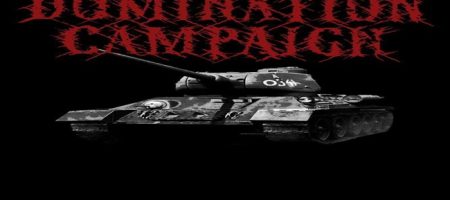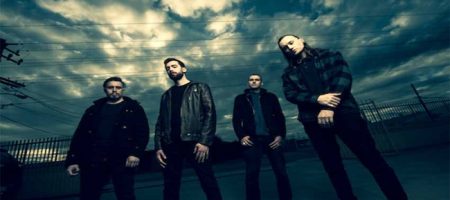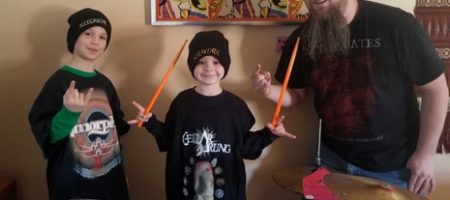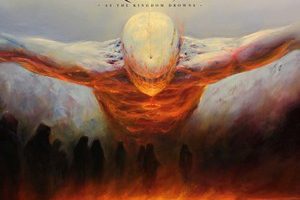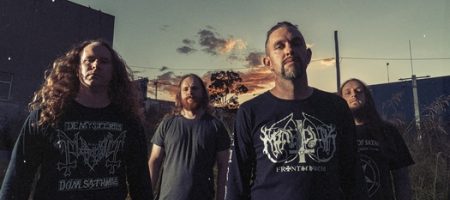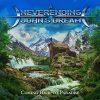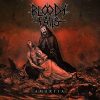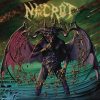Psycroptic – Tech Metal Evolved
Sunday, 15th March 2015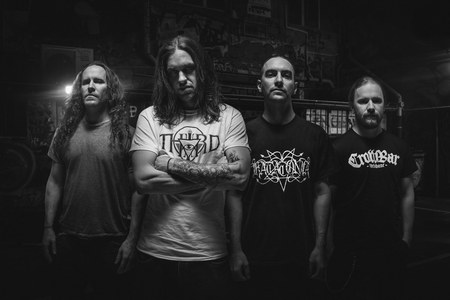
Admittedly, the first thing that many think of when they hear Tasmania, is the Looney Tunes character called the Tasmanian Devil. A bit shallow perhaps, but for Psycroptic, it can actually work as a fitting analogy. Whirlwind guitar riffs, shouted vocals, and an overall sound of fury does sound a bit like the cartoon character. However, there’s nothing funny or cartoonish about the band’s ability to write some memorable death metal that is almost equally soaked in technical splendor as it is crushing groove.
Psycroptic has never been one to let the wheels spin idly, and there’s been a constant evolution of the band’s sound over the years. Having spent the last two albums under the Nuclear Blast flag, the band moved over to the waters of Prosthetic for their latest self-titled release. A monstrous slab of technically injected extreme metal that you can actually remember after it’s over, the years have done little except to further enhance the band’s sound. So when a chance to talk to guitar wizard Joe Haley presented itself, DR was happy to oblige. We spoke of the band’s label change, their shifts in sound over the years, Joe’s forays into production, and even how the band is doing their part to help out the actual Tasmanian devils, who sit at the brink of extinction.
Dead Rhetoric: Usually when a band puts out a self-titled album, it’s a re-branding or new beginning. Why’d you chose to title this album Psycroptic?
Joe Haley: The idea for having a self-titled, we were actually thinking of it with our last album. Mainly it was just a bit tricky [to come up with a title]. We’ve had a few albums that were named after just a song, but we’re not huge fans of that. We try to have a title that kind of sums up everything. But with this one, there wasn’t anything that suited it as a whole and we had that idea in the back of our heads from the last album, so we thought it kind of suited it so we went with it.
Dead Rhetoric: How do you feel that the band has progressed over the years?
Haley: There’s been a definite change with what we do, but it’s never been particularly a conscious kind of move, it’s more of a natural progression. If you listen to one of our albums and then listen to the one before that, you can see a definite link but over time it does morph a little bit. I think the new one is a little different from the last one, but there are still a lot of similarities as well, sticking to that groove/thrash element. If we look back at our first couple of albums, they are more straight-ahead tech death I guess but I think just naturally over time, while there are still elements of that, I think it has evolved into an almost thrashy kind of death.
Dead Rhetoric: You’ve stayed in that same basic line, but as you have changed over the years, do you feel that with the need to label the band as something, you tend to still be lumped in with the tech death movement?
Haley: Yeah, that’s going to happen to any band. The way they started out, people are going to perceive them that way or compare them to their roots. I can kind of see how people can still refer to us as a tech death band, but me personally, I wouldn’t put us into that kind of category. I wouldn’t know what category we are in but it would probably be closer to the thrashy/groovy kind of metal, but because of where we came from and there’s still the technical elements, I think that’s why we are still pushed into that category I guess. I don’t have any problems with that, it’s just kind of what happens.
Dead Rhetoric: It kind of feels similar in some ways to how Decapitated has progressed, with putting in more groove over the years. Is there any reasoning behind it or is it more just, “go as you may?”
Haley: It’s just kind of a natural progression. There’s a few things that we can kind of pick up on ourselves that we are conscious of and that changes the way we do things. I think what has made it have this change at certain points is the approach to structures. We have written riffs and written parts, and it’s always been pretty similar. In the early days, we would try to cram as many riffs into a song as we possibly could, not really thinking about structure at all. We’d just cram them in and go with it. Over the past few years, it’s been more thinking about structure and keeping in sections that need to be there. Things that will suit a song rather than trying to cram everything in for the sake of it. We’ve been trimming a bit of the fat out of the songwriting.
Dead Rhetoric: So what does the writing process look like at this point for a typical Psycroptic song?
Haley: It has changed a little bit because my brother [drummer David Haley] lives an ocean away now. He is living in Melbourne [Australia], and the rest of us are still here in Tasmania. We can’t rehearse as much as we used to. All the writing that we did, probably up until [The Inherited Repression], was kind of together. Or at least Dave and I would jam together a lot more and write stuff that way. Because of this situation, it’s a bit more separated. I write things myself and then send the ideas over to him so it’s more of a long-distance thing. Which obviously changes things, not particularly for the worse, but makes things different. It might have changed the way that certain things sound and the way we approach writing, but for us, we are pretty comfortable with it and it works pretty well.
I kind of tend to put together a bunch of riffs and then send if off so we can come up with ideas. Then we’ll get together after a couple of months and jam it out and see what we’ve got. In the beginning, we were jamming from the start but now when we get together we have more of an idea of what’s going on, so it’s more piecing together the finishing touches.
Dead Rhetoric: You mentioned your brother, and I’m assuming that it’s a non-issue since the two of you have been in the band since the beginning, but are there any challenges to being in a band with a sibling?
Haley: No, not really. There’s the usual brotherly riff-raff but no real issues. We grew up living together and living with our parents until we were quite a bit older so we’ve grown up jamming in the same house. So we are totally comfortable with it all.
Dead Rhetoric: So on the other side, are there any benefits?
Haley: It’s kind of a tricky question because we don’t know any different. We’ve always done it that way; I’ve jammed with other people here and there but never as a serious thing. This is only the serious band we’ve ever had, so we don’t know any differently. There are a couple other bands that we play in, like this black metal kind of band called Ruins. Once again, we both in it together so there’s the same kind of dynamics. I’m sure there are benefits to it but it’s all we’ve known.
Pages: 1 2











